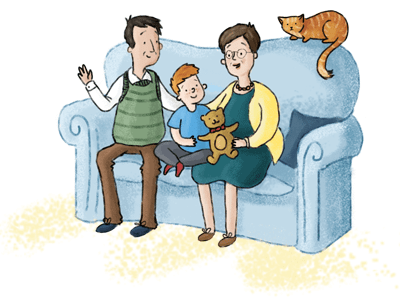
The President of the Family Division of the High Court issues fresh guidance on the 26 week timetable in Care Proceedings.
Parents will always be told of the “26 week timetable” in care proceedings, in that the law sets out clearly that care proceedings ought to be concluded within 26 weeks (6 months) of when the application is made to the court.
In recent years, that timetable has not been adhered to and proceedings have taken much longer to conclude (often in excess of 12 months) with an array of reasons to blame (which include but are not limited to; staffing shortages at local authorities and CAFCASS; a significant increase in the number of applications being made to the Court; expert timescales being very lengthy; and COVID 19).
The Rt. Hon Sir Andrew McFarlane has re-issued guidance (set out below) which makes clear that only in exceptional circumstances will cases go beyond 26 weeks. This should be seen in a positive light for parents who will have confidence in knowing when final decisions will be made about their children and where their future lies.
There is always the ability to apply to extend the proceedings under section 32(5) Families and Children Act 2014, and parents ought always to remember that justice must never be sacrificed upon the altar of speed” and in considering that principle all solicitors will have in mind whether a particular clients case warrants an application under section 35(2). It is widely accepted however that delay is detrimental to the welfare of the child.
The following guidance has been re-issued to practitioners to follow and so parents within care proceedings should know about them and what to expect as they journey through care proceedings:
[taken from the guidance dated Nov 22]
The first hearing should be the Case Management Hearing [‘CMH’], held ‘not before Day 12 and no later than Day 18’; an advocates meeting is to be held no later than 2 days before the CMH [see PLO Stage 2];
Parents to be expressly required to identify any family members for assessment at, or within a week of, the CMH;
No other hearing should normally be listed after the CMH until the Issues Resolution Hearing [‘IRH’];
Since 2016/7 there has been a 33% rise in the number of experts instructed. Experts should only be instructed where to do so is ‘necessary to assist the court to resolve the proceedings justly’, rather than where it is merely desirable or helpful [C+FA 2014, s 13(6)].
The third hearing in the case, if necessary, will be the Final Hearing;
- At the IRH or Final Hearing the court is only required to evaluate and decide upon the following issues:
- Are the s 31 threshold criteria satisfied?
- If so, what are the ‘permanence provisions’ of the care plan [CA 1989, s 31(3A)+(3B)]; and
- What are the contact arrangements [CA 1989, s 34(11)]?
- By affording paramount consideration to the welfare of the child, what final order(s), if any, should be made.
The court is not required to consider any aspect of the care plan other than the permanence provisions;
- Robust case management by the court is required at all stages. This will include, where necessary, regular ‘compliance’ hearings to deal with any failure by a party to meet dates. All parties will be expected to monitor compliance with the court timetable and, if needed, report any failures to the court.
Bromleys have a large team of expertly trained solicitors who can assist you, if you have any questions please urgently please call us on 0161 330 6821 or fill in our online form. Alternatively, you can email us on bromleys@bromleys.co.uk and we’ll call you back.











